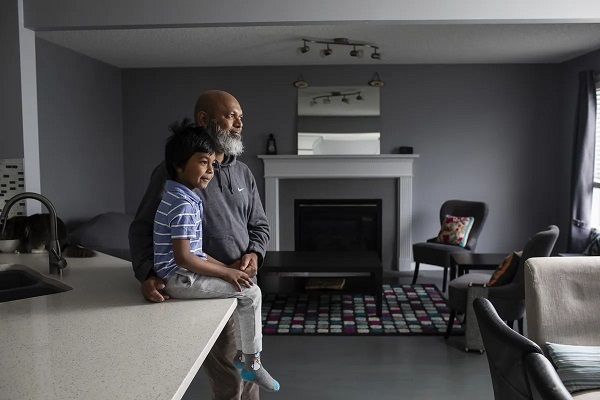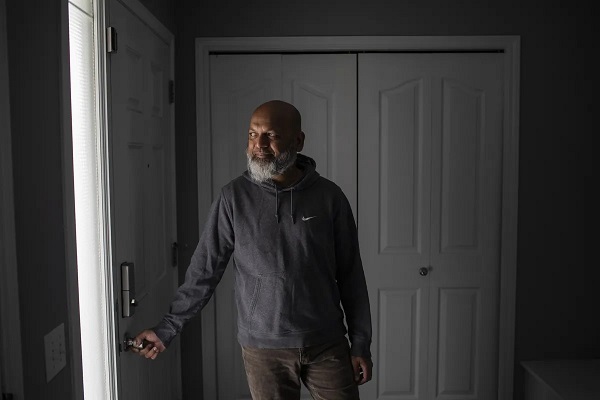Halal Financing Enabling Canadian Muslims to Buy Houses

Canada’s housing market is in retreat, but in some provinces there’s an emerging niche where demand for home loans is still booming: Halal financing for Muslim homebuyers.
More than a million Canadians identify as Muslim, but they are disproportionately renters and many have felt shut out of the country’s real-estate market. That is because practising Muslims are prohibited by their faith from paying or receiving interest, which prevents them from taking conventional mortgages.
In Edmonton, a new startup, Canadian Halal Financial Corp., is trying to meet some of the demand for home ownership in Alberta’s Muslim community. The company was founded by Thomas Lukaszuk, a former provincial MLA and cabinet minister, and John Stainton, a businessman and lawyer.
The two have worked closely with the Al Rashid Mosque, a local mainstay, to create an alternate type of mortgage that they say meets strict religious standards. The company has approved 600 applications since its launch last December, with more than a dozen new requests coming in each week.
“This is the fastest growing segment of the Canadian population that was excluded from Canada’s real-estate market,” Mr. Lukaszuk said. “It’s extremely, personally, very rewarding. But it took a lot of effort.”
Islamic finance isn’t new, but it exists in a fragmented patchwork across the country and has yet to enter the financial mainstream. Many providers of halal mortgages are concentrated in Ontario, and some have operated in a religious grey zone without much oversight or a consistent set of standards, unlike the halal food industry, which is tightly regulated.
Canadian Halal Financial positions itself as a credible provider of mortgages that comply with Islamic principles on the authority of two fatwas – a form of religious edict – from respected Muslim authorities. That includes one from a committee at Al Rashid, Canada’s oldest mosque and a prominent hub in Edmonton.
One of the mosque’s leaders, Imam Mahmoud Omar, travelled to Egypt and to get approval from scholars at Al Azhar University, one of the world’s oldest sources of Islamic jurisprudence. The fatwa that Al Azhar granted to Canadian Halal Financial is the first for a North American company.
Yet it took years of discussions, and six-figure legal bills, to reach that point, responding to pressure from the mosque’s congregation about the need for a halal way to buy a home in Alberta.
“They approached the Imams, they said ... ‘we cannot rent forever, so find us a solution,’” Mr. Omar said in an interview.

At first, leaders at Al Rashid had discussions with credit unions and banks locally. But those institutions concluded that they couldn’t create a compliant product and keep it separate from their core business lending and taking deposits based on interest, Mr. Lukaszuk and Mr. Omar said. As a result, they wouldn’t be considered halal.
The Al Rashid mosque then turned to Mr. Lukaszuk, who had done business building new homes after he left politics, where he met Muslim clients looking for a way to finance new construction. It took two years of meetings with lawyers and scholars to draft contracts that complied both with provincial and Islamic laws. And there were times when Mr. Lukaszuk thought it “would be impossible.”
When the company launched, “it was a big hit and big news,” Mr. Omar said.
“Imagine that when someone is renting for the past 20 years and it’s like, finally, you guys made it possible for me to own my house. It was an emotional time.”
The company offers two types of halal financing. Both require a down payment of at least 25 per cent, regular payments until the home is fully paid for and charge a fee over and above the price of the home that is not based on interest rates.
“It is okay from a religious perspective for us to make a profit, but this profit cannot be interest-based,” Mr. Lukaszuk said.
By far the most popular type of contract is musharakah, a form of partnership similar to a lease-to-own structure. The buyer’s name is on the title to the home, the amortization period can be up to 30 years and there is flexibility to make early lump-sum payments. Also available is a more traditional murabaha contract, which has a shorter term up to 15 years and payments that are locked in.
Source: Theglobeandmail.com
 Most Commented
Most Commented 


